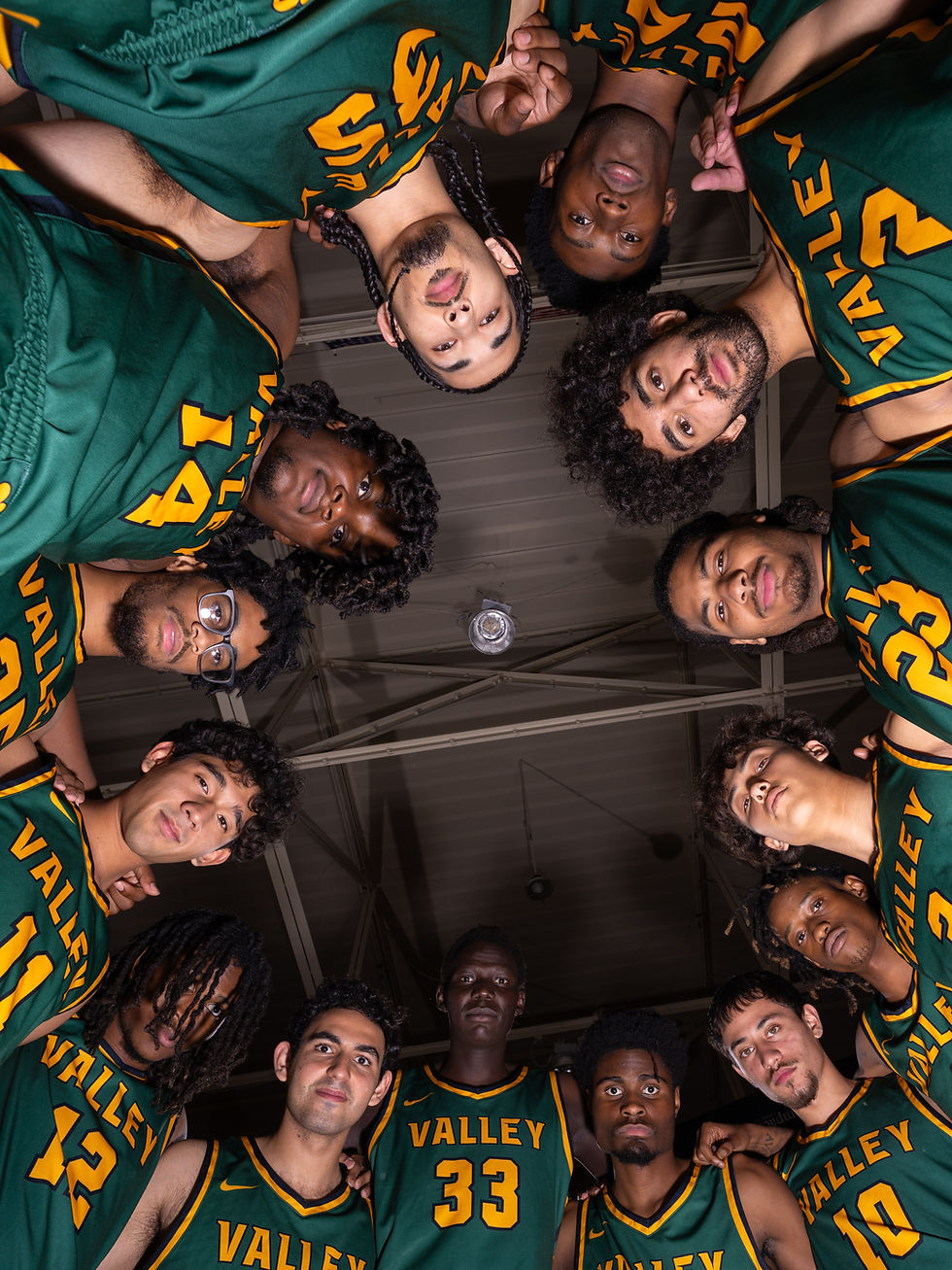The future of esports is tangible
- navacassie
- May 12, 2021
- 3 min read
Updated: May 15, 2021
The COVID-19 pandemic may be the perfect time to implement esports at Valley College.
By Aaron Fooshee, Special to the Star

Esports — the domain of competitive, organized, online video gaming — has gained popularity over the past decade and many colleges are getting in on the action.
Esports at Valley College isn’t a thing, yet, but it could offer players and fans a way to connect during the pandemic and beyond. Additionally, the presence of esports teams opens the opportunity for new majors centering on esports management, game design and development. All of these activities could provide Valley a new platform for promotion, increased enrollment and revenue.
Esports in American colleges and universities is already well established, including community colleges. At the last tally in 2019, ESPN recorded 128 colleges with varsity esports programs. These schools have seized upon the esports boom.
Research compiled by Newzoo, a leading esports analytics and market research firm, said in its most recent financial forecast that, “Global esports revenues will grow to $1.1 billion in 2020, a year-on-year growth of +15.7 percent, up from $950.6 million in 2019.” This optimism is echoed by authorities from investment bank Goldman Sachs to market research company Valuates, each saying that growth isn’t expected to slow anytime soon.
So, how might Valley join the esports ranks? The answer is not straight-forward.
The association serving most of the country’s community college athletic departments, The National Junior College Athletic Association, has an active esports platform, NJCAA Esports, but California’s community colleges are outside of their domain.
According to Dave Mallas, co-interim athletic director of the college’s Athletics Department, due to its large number of community and junior colleges and high enrollment, California operates apart from most of the nation as the California Community College Athletic Association.
Unlike the NJCAA, the CCCAA has no significant involvement in organizing esports.
While there are some esports organizations open to American colleges of all types and from all states, such as The National Association of Collegiate Esports, the lack of a strong, central organizing body orchestrating esports among all colleges leaves individual community and junior colleges in our state to organize esports on their own — or not.
Mallas, speaking for the Athletic Department, said that, “At this point in time … there is no plan to get [esports] started.”
Still, he personally expressed interest in the possibility and said it is something that has recently been discussed amongst his athletic department faculty peers within the CCCAA Western State Conference, a conference that includes Valley, Pierce College, Mission College and 15 other local colleges.
Tempering this interest, Mallas questioned where esports might fit into Valley life. He said, “the easiest place to start would be the clubs” operated by the Associated Student Union, due to fewer restrictions regarding “funds and equipment” compared to that which is needed for inclusion in the Athletic Department.
Mallas also said, “I’m a coach and it’s hard to convince me that [electronic gaming] falls into the athletic category,” and that he himself is not a gamer.
This question of fitness raises another possibility: locating esports nearer to media arts or business departments. But Media Arts Department Chair, Eric Swelstad, said he was unfamiliar with esports and did not immediately see how it would fit within his department.
The media consultancy activate said in its Activate Technology & Media Outlook 2021 report accompanying Founder and CEO, Michael J. Wolf’s Wall Street Journal Tech Conference presentation that, “Gaming is the new technology paradigm as most digital activities ([for example] search, social, shopping, live events) will increasingly take place inside of gaming.”
The report goes on to say, “during shelter-in-place esports were sports for many consumers; going forward, esports will be a major global catalyst for interest in interactive gaming, technology and entertainment experiences.”
With esports emerging as a site where culture and commerce intersect, it is not surprising that many colleges have begun offering degrees and certificates in esports management and esports game design. Institutions offering these kinds of programs include small community colleges like Central Maine Community College and Jackson College, as well as large universities, most notably, nearby University of California, Irvine.
Perhaps someday, esports at Valley might find its place too. But, when and where, and under whose guidance this will happen is uncertain.
A year into the COVID-19 pandemic, with traditional sports on pause, now seems like a good time to be giving esports some serious consideration and if it is to happen, now seems like a good time to make a plan and act on it.




AV在线看 AV在线看;
自拍流出 自拍流出;
国产视频 国产视频;
日本无码 日本无码;
动漫肉番 动漫肉番;
吃瓜专区 吃瓜专区;
SM调教 SM调教;
ASMR ASMR;
国产探花 国产探花;
强奸乱伦 强奸乱伦;
AV在线看 AV在线看;
自拍流出 自拍流出;
国产视频 国产视频;
日本无码 日本无码;
动漫肉番 动漫肉番;
吃瓜专区 吃瓜专区;
SM调教 SM调教;
ASMR ASMR;
国产探花 国产探花;
强奸乱伦 强奸乱伦;
代发外链 提权重点击找我;
蜘蛛池 蜘蛛池;
谷歌马甲包/ 谷歌马甲包;
谷歌霸屏 谷歌霸屏;
谷歌霸屏 谷歌霸屏
蜘蛛池 蜘蛛池
谷歌快排 谷歌快排
Google外链 Google外链
谷歌留痕 谷歌留痕
Gái Gọi…
Gái Gọi…
Dịch Vụ…
谷歌霸屏 谷歌霸屏
负面删除 负面删除
币圈推广 币圈推广
Google权重提升 Google权重提升
Google外链 Google外链
google留痕 google留痕
代发外链 提权重点击找我;
谷歌蜘蛛池 谷歌蜘蛛池;
Fortune Tiger Fortune Tiger;
Fortune Tiger Slots Fortune…
谷歌权重提升/ 谷歌权重提升;
谷歌seo 谷歌seo;
מכונות ETPU מכונות ETPU;
Машини ETPU Машини ETPU
ETPU-Maschinen ETPU-Maschinen
EPS-машины EPS-машины
ЭПП-машины ЭПП-машины� بي يو
ETPU maşınları ETPU maşınları
ETPUマシン ETPUマシン
ETPU 기계 ETPU 기계
代发外链 提权重点击找我;
谷歌蜘蛛池 谷歌蜘蛛池;
Fortune Tiger Fortune Tiger;
Fortune Tiger Slots Fortune…
谷歌权重提升/ 谷歌权重提升;
谷歌seo 谷歌seo;
מכונות ETPU מכונות ETPU;
Машини ETPU Машини ETPU
ETPU-Maschinen ETPU-Maschinen
EPS-машины EPS-машины
ЭПП-машины ЭПП-машины� بي يو
ETPU maşınları ETPU maşınları
ETPUマシン ETPUマシン
ETPU 기계 ETPU 기계